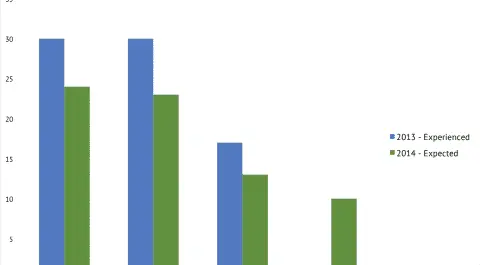The following article is archived and is no longer considered up-to-date. Please interpret its content in the context of the publishing date.

ARCHIVED
Budget Cuts in South America: Experienced and Expected Changes in Academic Institutions
Read a summary using the INOMICS AI tool
Last year, we conducted a global survey of nearly 800 academics, asking questions about budget cuts at their respective institutions for fiscal year 2013, and their expectations for 2014. We wanted to get a sense of the climate around the world in terms of who is still being affected by the economic downturn, and to what extent, in order to better grasp the daily reality for both employers and job seekers.
In this post we’re focusing on survey respondents from South America. We recognize that there are vast differences between various countries in South America, but due to a low response rate from individual countries, we are reporting aggregate data from across the region. Of those who took part in our survey from South America, 66% said they work in universities, 17% in private companies or consultancies, 9% in NGOs, 3% in the government, another 3% in banks and the remaining 3% in international or aid organizations.
Compared to other countries around the world, the percentage of people reporting any budget cuts in South America was quite low. Moreover, the anticipated budget cuts for fiscal year 2014 were even lower than those reported for 2013. A notable exception to this trend, however, was a jump to 10% of respondents saying they expected cuts in their marketing budgets for 2014, while no one reported marketing budget cuts for 2013.
A full 50% of respondents anticipated that their marketing budgets would not be affected in 2014, however, and 27% reported budget increases. These numbers were very similar to responses regarding overall budgets, with 50% expecting no changes in 2014 and 21% expecting increases. The overall outlook for researchers and others working in South America is therefore quite positive, particularly compared to other regions around the world.
-
- PhD Program, Program, Postgraduate Scholarship
- Posted 1 week ago
PhD Program in Economics - 6 Fully Funded Scholarships
at Luiss Guido Carli University of Rome in Rome, Italien
-
- Postdoc Job
- Posted 1 week ago
Postdoctoral Research Fellow Opportunity
At University of Notre Dame in Notre Dame, USA
-
- Postdoc Job
- Posted 1 week ago
Postdoctoral Researcher (all genders welcome)
At Georg-August-Universität Göttingen in Deutschland













